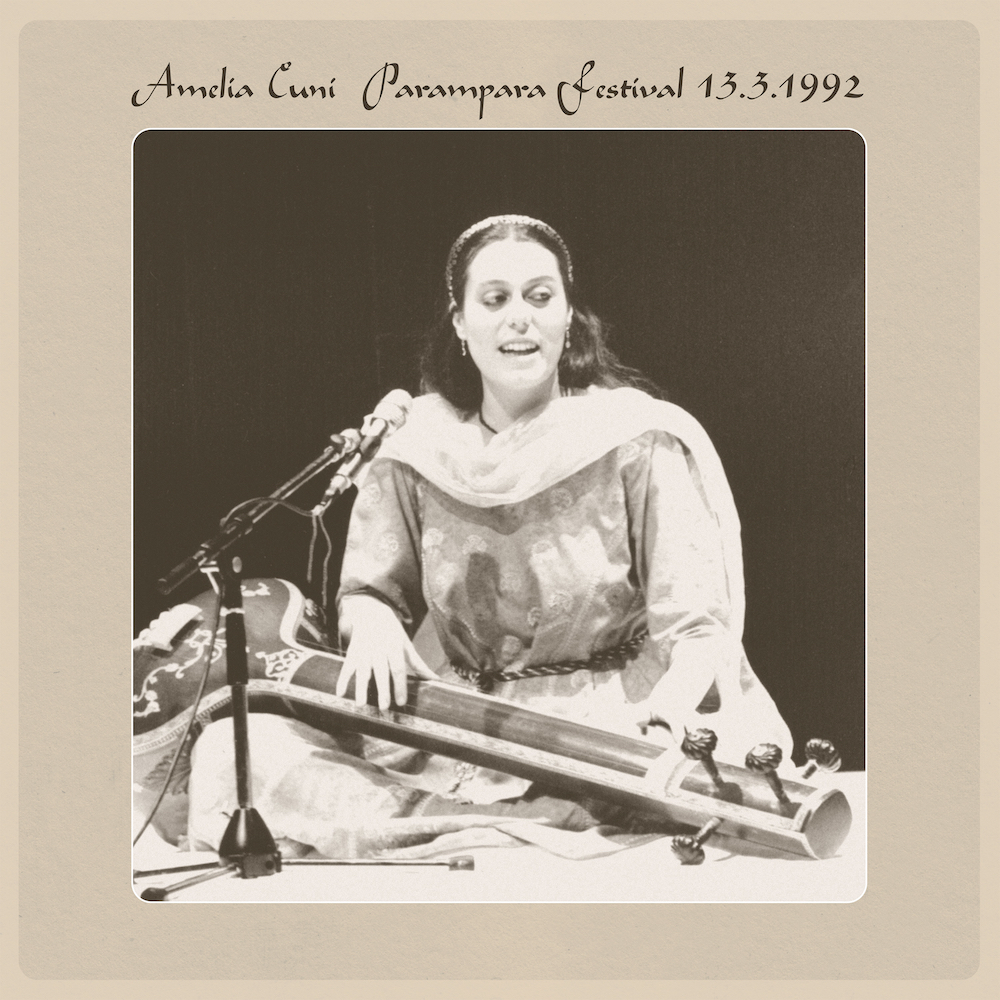Amelia Cuni is something of an enigma. There’s just no other way to put it. Born in Milan, Cuni found herself inextricably drawn to traditional Indian music, specifically, Dhrupad. The oldest vocal style of Hindustani classical music, Dhurpad has continued to thrive in the present day, and to master its technique and stylings, Cuni spent more than 10 years in India, studying with the masters of the form. Versing herself deeply in both Dhurpad and her chosen instrument, the tanpura, Cuni finally returned to the West, selecting Berlin as her new home.
It was there that the recordings that compose Black Truffle’s latest archival release, Parampara Festival 13.3.1992, took place. An event intended to celebrate the global spread of Indian classical music, it brought together teachers of the form with their eager students.
The performance found her accompanied by Gianni Ricchizzi on vichitra vina (“a plucked zither played with a glass ball slide,” a press release explains) alongside her tanpura, but it’s ultimately Cuni’s all-consuming vocals that omnipresently take center stage.
The genesis of the material performed is unique in itself. Rather than selecting a traditional Hindustani verse, Cuni sought to reach for something that both represented her own culture and upbringing, as well as adhering to the Indian traditions she so revered. To that end, she ended up on the mystical texts of 13th century Franciscan friar Jacopone da Todi. In order to meld this source with the traditions of Dhrupad, she selected passages enamored with divine love, inexorably linking her Italian text despite her unorthodox approach.
You may have noted that I’ve spent all my time thus far discussing the background and significance of Parampara Festival 13.3.1992. The reason is simple: it’s damn hard to discuss beyond that.
What’s not hard is picturing yourself in the audience at the time; the music here remains as enrapturing today as I imagine it was then. It’s a deeply engrossing performance, of the sort that absolutely washes across the mind, sweeping away whatever thoughts and troubles were there prior. While some of Cuni’s releases have verged into New Age spiritualism, there’s something undeniably pure about her performance here; unvarnished, raw, and supremely, serenely beautiful.
What’s absolutely clear is the deep sense of longing present in Cuni’s verses. Beyond that? It’s entirely on the listener. One moment you might find yourself wandering some lost expanse, flicking water from fronds of grass on the edge of a stream, the next you might be deep at sea, on a vessel as old as the traditions Cuni delves into, far from everyone you know, yet at peace. It offers, however fleetingly, an escape from all the drama and toils of daily life. This is music of absolute stillness and supreme movement, all at once. Lay back somewhere comfortable and simply press play. The places it takes you are entirely up to you, but it’s undeniably a voyage. Close your eyes and drift.

